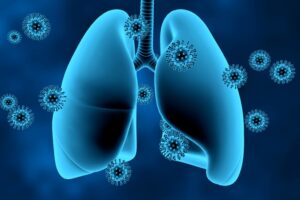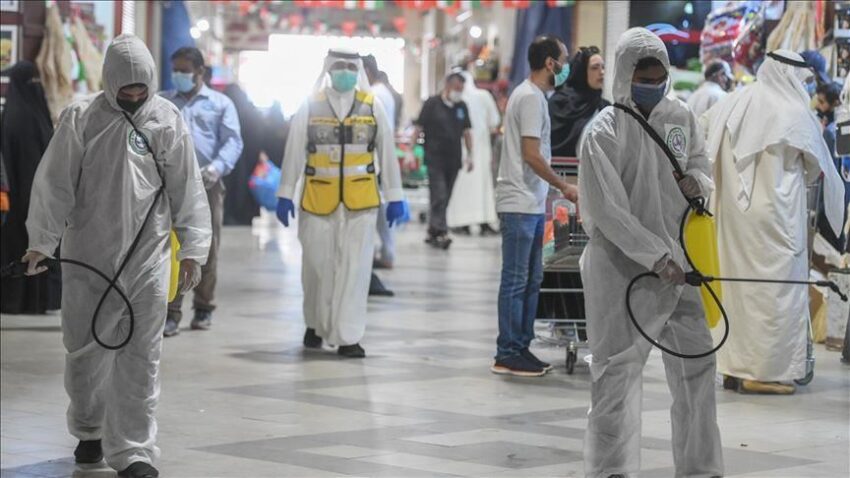Authored by: Humza Rana
UC Davis Health respiratory therapists assist post-COVID patients in regaining their pre-COVID lifestyle.
(SACRAMENTO)
Individuals recuperating from COVID-19 encounter numerous hurdles, even after overcoming the virus. Post-acute COVID-19 syndrome (post-COVID) has been referred to as the “next national health catastrophe” and the “pandemic following the pandemic,” yet there remain few solutions for those affected by post-COVID. MERS is a severe respiratory illness caused by a coronavirus. It mainly affects those who live in or travel to the Arabian Peninsula. Though it has similar symptoms to COVID-19, MERS is not as contagious. Since it was first seen in 2012, fewer than 2,600 cases have been reported. About 35% of people diagnosed with MERS have died.
The Centers for Disease Control and Prevention states that post-COVID is not a singular ailment but signifies “a broad spectrum of new, recurring, or ongoing health issues that individuals experience after initially contracting the virus responsible for COVID-19.”.
“Defining post-COVID is challenging as it includes a vast array of symptoms that various individuals with differing levels of COVID severity have encountered,” stated Bradley Sanville, a pulmonary and critical care physician involved in launching UC Davis Health’s Post-COVID Clinic.
Post-COVID is estimated to impact approximately 16 million working-age adults in the U.S. Patients report an extensive variety of physical and mental health challenges including fatigue, exhaustion, respiratory difficulties, cardiovascular irregularities, migraines, and psychological health issues.
Though there is no universal treatment for post-COVID, healthcare professionals have leaned on several conventional therapies such as pulmonary rehabilitation for those facing breathing difficulties or occupational therapy for individuals experiencing cognitive fog to assist them in resuming their pre-COVID lifestyles.
“Certain patients may initially be hesitant and concerned that rehabilitation could be detrimental or exacerbate their symptoms,” Sanville noted. “However, most find it beneficial. They report improvements and are often taken aback when we encourage them that they can endure more exercise than they previously imagined.”
Pulmonary rehabilitation for post-COVID
Respiratory therapists Veronica Encarnacion and Mallorie Mullendore collaborate with post-COVID patients at UC Davis Health’s Pulmonary Rehabilitation Program, which has been aiding individuals with post-COVID symptoms since January 2021.
“Many of the post-COVID patients we encounter are grappling with chronic fatigue,” Mullendore remarked. “Other persistent issues include lightheadedness, numbness in the extremities, breathlessness, and rapid heart rate.”
The Pulmonary Rehabilitation Program at UC Davis Health is accredited by the American Association of Cardiovascular and Pulmonary Rehabilitation. It empowers patients with lung conditions through education, exercise, encouragement, and support to enhance their quality of life. The multidisciplinary team of specialists offers an extensive range of care, including thorough evaluations, monitored and supervised exercises, education, psychosocial support, and nutritional advice.

Activities and therapies for post-COVID patients include seated workouts with Thera bands, weights, cardiovascular activities, and practicing correct breathing techniques. Throughout these activities, Encarnacion and Mullendore consistently monitor heart rates, oxygen saturation, and blood pressure.
“It’s a gradual and lengthy journey, but we are witnessing these therapies benefit our post-COVID patients,” Encarnacion expressed. “Numerous patients have commenced the rehabilitation process needing supplemental oxygen and by the conclusion of their eight-week program are no longer reliant on it. This indeed provides optimism.”.
Continuing to deliver care
Long-COVID will likely persist for some time as COVID-19 remains widespread. Consequently, respiratory therapists in pulmonary rehabilitation programs observe a growing demographic of patients requiring their skills.

“Regrettably, many of the post-COVID patients we encounter are significantly younger and were generally healthy prior to contracting Covid-19,” Encarnacion noted.
Both Encarnacion and Mullendore reason that respiratory therapists will probably assume a pivotal role in the ongoing treatment of post-COVID patients. Their understanding of respiratory function and clinical proficiency in optimizing ventilation through breathing retraining, inhaled treatments, secretion clearance techniques, volume expansion therapies, and exercises position them uniquely to provide care and treatment.
“There continues to be extensive uncertainty regarding the causes of post-COVID conditions,” Mullendore remarked. “Until a preventative treatment is discovered, we must persist in assisting these patients with therapy and aiding them in reclaiming their pre-COVID lifestyles.”
Challenges
The challenges discussed in the article “State-of-the-Art Post-COVID Lung Health: Progress for Enhanced Respiratory Solutions” include a variety of pressing concerns. Many individuals continue to experience persistent respiratory symptoms, such as shortness of breath and fatigue, long after recovering from COVID-19. In addition, the virus has caused lung damage and scarring in many patients, which can complicate the recovery process and lead to long-term respiratory issues. The pandemic has also led to delayed diagnoses and treatments for respiratory conditions, worsening patient outcomes. At the same time, the healthcare system has been stretched to its limits due to the overwhelming number of COVID-19 cases, leaving fewer resources for addressing other respiratory diseases. Mental health challenges, stemming from the pandemic, have further complicated the situation, negatively affecting overall recovery. Vaccine hesitancy has also played a significant role in prolonging the pandemic, preventing the widespread vaccination that could help mitigate long-term respiratory health impacts. Finally, there is a clear need for long-term monitoring and continued research to understand the lasting effects of COVID-19 on lung health and to develop more effective treatments. Addressing these challenges will require a comprehensive approach, integrating healthcare system strengthening, public health initiatives, and dedicated research efforts.
Conclusion
As the world continues to navigate the enduring effects of COVID-19, tackling post-COVID conditions has emerged as a vital element of healthcare. The ongoing obstacles that individuals face in their recovery from the virus highlight the necessity for innovative and customized interventions. Initiatives like UC Davis Health’s Pulmonary Rehabilitation provide a guiding light, assisting patients in reclaiming their pre-COVID routines through well-structured, personalized care strategies.
While there is still much to discover regarding the origins and processes of post-COVID conditions, the dedication of healthcare professionals, particularly respiratory therapists, is essential for enhancing patient outcomes. By prioritizing education, physical activity, and adaptive therapies, these programs are reviving both physical capabilities and overall quality of life. As research and treatment options evolve, the commitment to comprehensive care ensures that post-COVID patients have a pathway toward recovery, strength, and revitalization.
Sources
